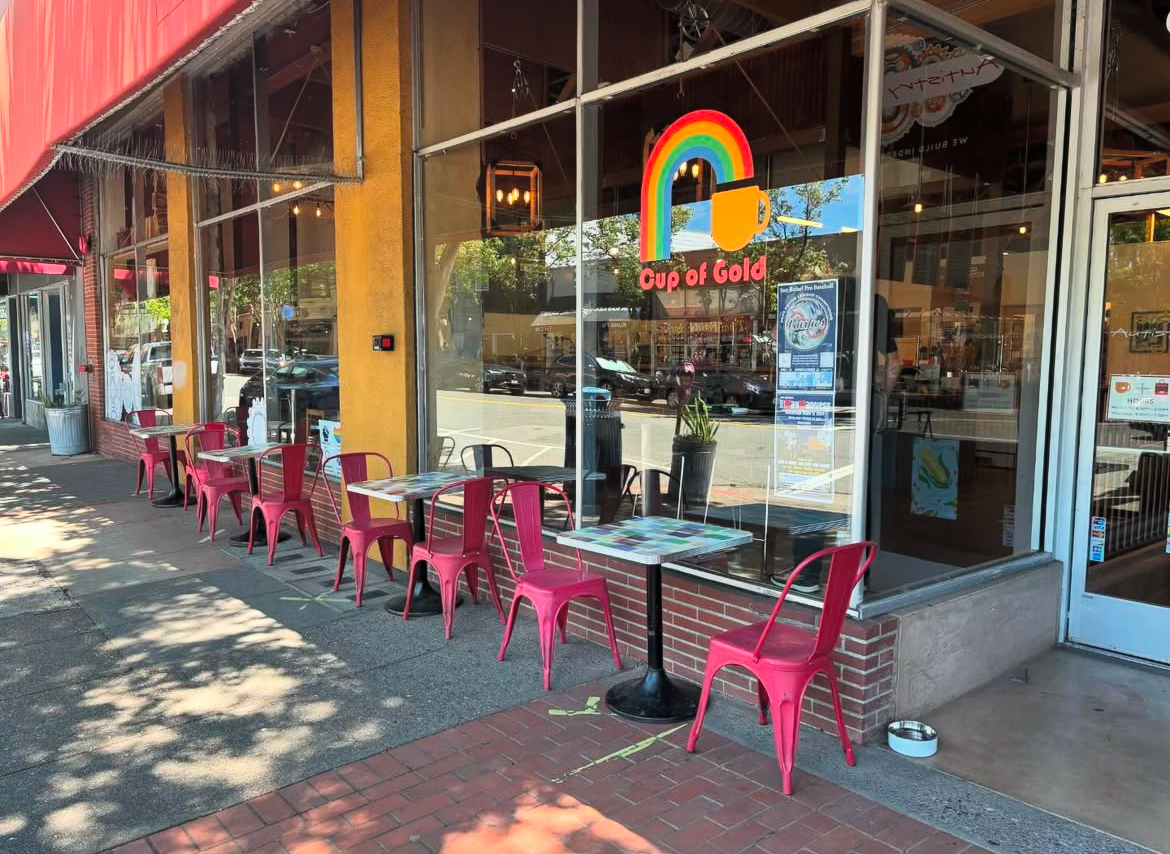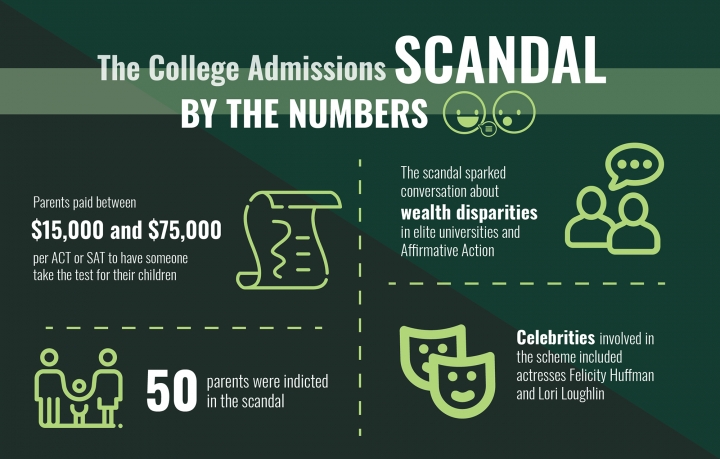SRHS Students Feel Effects of College Admissions Bribery Scandal
May 6, 2019
The CCC is crowded with students throughout the school day. As these students complete college applications, scholarships, and study for SAT and ACT exams, other, more privileged students, are taking the SAT exams in Los Angeles with a private proctor, “unaware” that the test they are taking is the exact same test they have been practicing for the past weeks.
Students and parents, some from schools in Marin, have been accused, and found guilty, of bribing elite institutions in order to gain admission to college. It is difficult to understand why students and their parents, who have the resources to pay for tutors, the practice SAT books, abroad trips for community work — all the resources that make them a competitive college candidate — decided to buy themselves a spot at these schools.
“[The scandal] feels surreal considering how local it is and how some of the kids in our school were involved,” explained Heidi Orozco, a senior at Marin Academy.
“At the beginning, I didn’t think it was very surprising but after I read all of the articles and FBI reports and found out MA students were involved, it suddenly became more real,” added Ashley Canales, another senior at Marin Academy.
Students have gotten into schools with the privilege of having money without committing a crime. Wealthy families are known for having connections with admissions counselors, being able to provide their students with college-educated tutors, or donating money to schools to build student centers. Instead of making these connections, the students cheated. Why didn’t their parents just buy the school a building?
“It is interesting how the privilege [of the students] has translated to the educational system,” noted San Rafael High School senior Maria Chi-Chable.
As schools are becoming more competitive, these privileged students have found a way around the admissions process.
Marin Academy senior Abraham Perez explained, “It is getting harder for wealthy white people to get into schools because the colleges are no longer just taking the people with the most money. They actually want students with different perspectives, different views, and different backgrounds so they can contribute different things to the college, not just money.”
Not only were parents bribing the schools directly, but also they were creating fake athletic profiles for their children so they could be recruited by the coaches of these schools. Although the children of these parents claimed they were not involved in the process, it is hard to believe they were completely oblivious to what their parents were doing.
“You have to be super ignorant to not realize you don’t play football,” acknowledged Chi-Chable.
In order to be good enough to be recruited for a sport, you have to commit time to practice and participate in it. Students whose parents simply paid enough money for this to happen took away a spot from a more qualified athlete.
The requisites that make an eligible college candidate also became areas in which individuals used their wealth to gain an advantage.
Most colleges require standardized tests such as the SAT and ACT. In order to take an untimed test, the students, have to prove they have a disability affecting their ability to take a timed test.
Parents whose children do not have any disabilities paid for medical documentation insisting that their students required special arrangements in order to take the test. This not only gave them the advantage of having more time but also, it affected the students who actually have disabilities and find it more difficult to take standardized tests.
Most students that applied to college spent countless hours studying for the required standardized tests, signing up for them, and taking them multiple times.
“They didn’t have to get through any of that. They didn’t have to stay up late studying or work extra hard. Even just going to the tests centers, they didn’t have to worry about that,” explained Canales.
Bribing schools to gain admission, now termed as the side-door method, has caused vexation in students attending the same schools as the ones involved, as well as communities of color.
Orozco recognized that “For us [low-income students of color], we can’t buy our way in, we can’t pay for tutors, so we deserve to go to these schools because we got in with our own merit.”
The students involved were not failing in school. Most, if not all, of them, attended private schools. They were receiving an education that provided them with many resources. They could have done just as well wherever they went to school but instead, it was decided that the best way to gain admission was to buy themselves in.
The articles that covered the scandal made it seem like the students involved were unaware of what was happening throughout the bribing process. Still, it shouldn’t be that hard to recognize that your experiences as a privileged student are way different than everyone else’s when you don’t have to take the SAT and ACT more than once.
“Privileged students live in a completely different mindset. Their idea of what is right and wrong is completely skewed compared to everyone else because of how they are raised by their parents,” concluded Sterling Rodas, a senior at Drake High School.
For everyone who pays to get into a school, someone else doesn’t because they have good morals or do not have the money to fix a spot. Many students in public schools don’t have access to the resources that are readily available to those with money. Still, they take extra AP and honors classes, join college access programs, work with the teachers at the college and career center–they take advantage of their limited opportunities–and gain admission to schools.






































